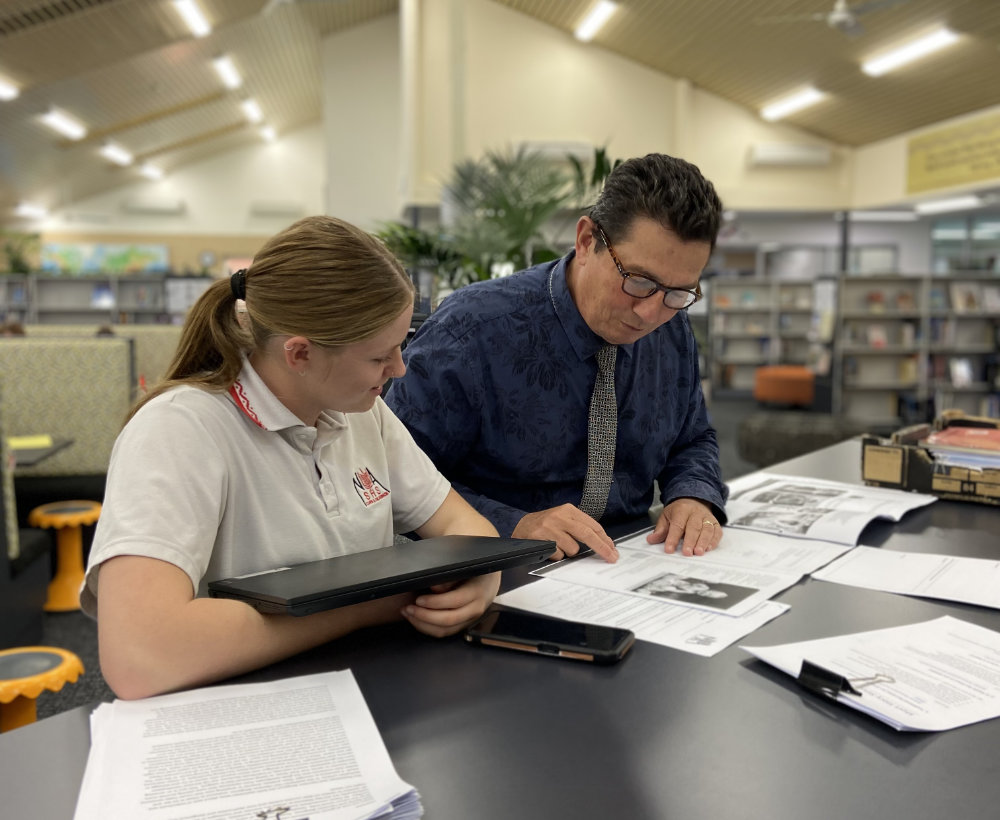English
Head of Learning Area
Mr Marc Ruffell
Email marc.ruffell@education.wa.edu.au
In English, at NASHS our focus is on being the key driver of literacy within the school. As well as being responsible for this promotion within our own department, we are an impetus and reminder to other Learning Areas that they too are responsible for being language rich in the manner that they teach their specialist areas. They too are responsible for modelling and correcting students’ use of Standard Australian English.
In order to promote literacy, departmentally have frequent meetings for
on-going discussion about standards, cross marking, post-assessment analysis and focus on teaching points linked to year level expectations with respect to texts on a whole text, paragraph, sentence, clause, group and word level. An ongoing point of emphasis has been questioning analysis and deconstruction and understanding of key terms within questions and scaffolding the teaching of keywords within questions such as analyse, assess, compare, evaluate, critically analyse, define, demonstrate, describe, discuss, distinguish, evaluate, examine, explain, identify, investigate, justify, outline.
Within the school as a whole English has promoted whole school strategies which have included the promotion of “word walls”, grammar posters, recurrent whiteboard prompts within classrooms in many Learning Areas. These have been willingly adopted across the school in LA’s outside of just English.
In line with our prioritisation of best performance in NAPLAN, our focus, both within the LA and in the school as a whole has been a focus on spelling, grammar and punctuation. In English, we continue to drill persuasive, narrative and other forms of writing.
A focus area has been the use of a wide range of statistical information to inform teaching practise. Students who have improved grades are rewarded and those who drop grades are communicated with and supported with an aim of reversing what has happened. NAPLAN results are used to identify strengths and weaknesses in both year 8 and 9 students. Year 8 students are tested with previous NAPLAN tests and these results are analysed. Individual areas of weakness are identified and work programs are modified to target specific areas of need. OLNA candidates are supported to develop and consolidate skills required for success in this important year 10 test.
A literacy handbook exists and has been promoted for use across Learning Areas throughout. The handbook specifies common understandings of text types, structures, and language use at a text, paragraph, sentence, clause and word level. The handbook is available in e-form on the server, and hard copies exist around the school. Promotion and explicit instruction in its use across the school will continue.
Exemplars and rubrics have been constructed, shared and discussed within English and used to scaffold the teaching of concepts, text types, grammar use and punctuation. Scaffolding, in general, has been an on-going priority so as to be as inclusive as possible and maximise learning differentiation within classes of sometimes wide-ranging differing abilities.
An upper school ATAR English handbook has been constructed and is promoted and available upon request. The handbook is extensive in its content and scope with respect to higher level literacy, Upper School curriculum and essential skills and concepts in ATAR year 11 and 12 English.
In English, there has been an ongoing focus on constructing detailed feedback after class assessments and using this feedback as an explicit teaching tool to identify and address demonstrated areas of literacy weakness.

© North Albany Senior High School

